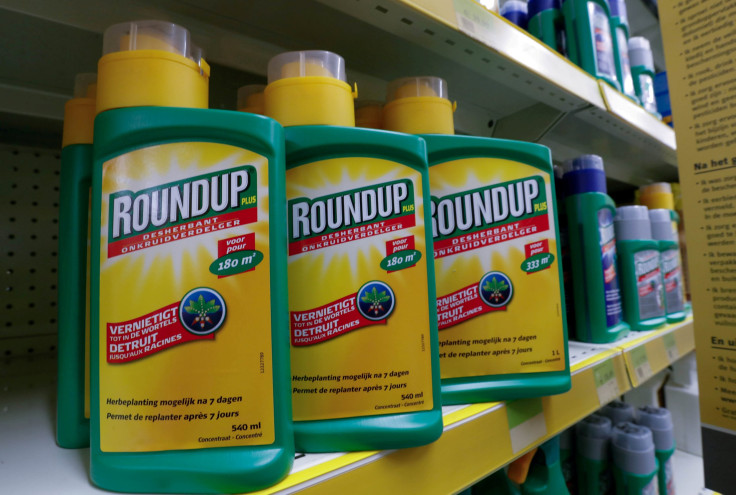Monsanto Weed Killer Cancer Case: Roundup Verdict Upheld, $78 Million Damages Awarded

A Northern California judge on Monday upheld a jury's verdict that found Monsanto's weed killer Roundup caused a groundskeeper's cancer. The judge, however, drastically reduced the amount of money to be paid to the man from $289 million to $78 million.
The verdict by a San Francisco jury in August awarded punitive damages of $250 million after it found the St. Louis-based agribusiness had purposely ignored warnings and evidence that its popular Roundup product causes cancer.
DeWayne Johnson, a California groundskeeper diagnosed in 2014 with non-Hodgkin's lymphoma, said he repeatedly used a professional form of Roundup while working at a school in Benicia, California. His job included spraying Monsanto’s herbicide, glyphosate, from 50-gallon drugs 20 to 30 times a year for two to three hours a day, according to reports.
Johnson sued Monsanto after he contracted the illness in 2014. After a four-week trial that included testimony by medical experts on both sides, jurors found unanimously in August that Monsanto was responsible for Johnson's lymphoma and should have known of the product’s dangers.
The jury ordered Monsanto to pay $250 million in punitive damages along with compensatory damages and other costs, bringing the total figure to nearly $290 million.
On Monday, San Francisco Superior Court Judge Suzanne Bolanos said it appeared the jurors overreached with punitive damages.
"Although we believe a reduction in punitive damages was unwarranted and we are weighing the options, we are pleased the Court did not disturb the verdict," Johnson's lawyers said. "The evidence presented to this jury was, quite frankly, overwhelming."
In her ruling, Bolanos gave Johnson the choice of accepting the lessened damages award or triggering a new trial focused on what Monsanto should pay in the case. His lawyers told Agence France-Presse they are considering which option to pursue.
"That said, today is a triumph for our legal system," his lawyers contended, calling the judge's ruling "an important win."
In a tentative ruling on Oct. 11, Bolanos said she was considering removing the punitive damage award, following which some jurors were upset by the prospect of having their verdict thrown out.
"I urge you to respect and honor our verdict and the six weeks of our lives that we dedicated to this trial," juror Gary Kitahata wrote to Bolanos, the San Francisco Chronicle reported.
Monsanto, which is now a subsidiary of the German pharmaceutical company Bayer AG, issued a statement via spokesman Christopher Loder.
“The Court’s decision to reduce the punitive damage award by more than $200 million is a step in the right direction. We continue to believe that the liability verdict and damage awards are not supported by the evidence at trial or the law and plan to file an appeal with the California Court of Appeal,” Loder said.
Bayer AG closed Monday at 76.54 points with a low of 1.35 percent on the London Stock Exchange.
© Copyright IBTimes 2025. All rights reserved.





















